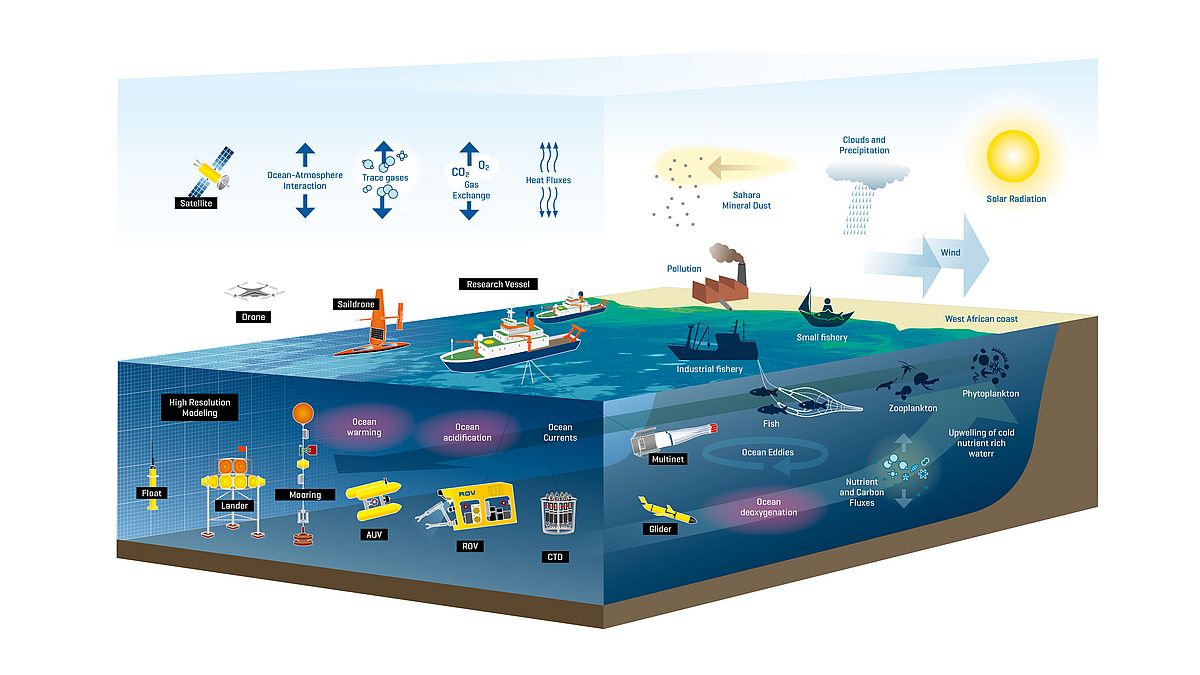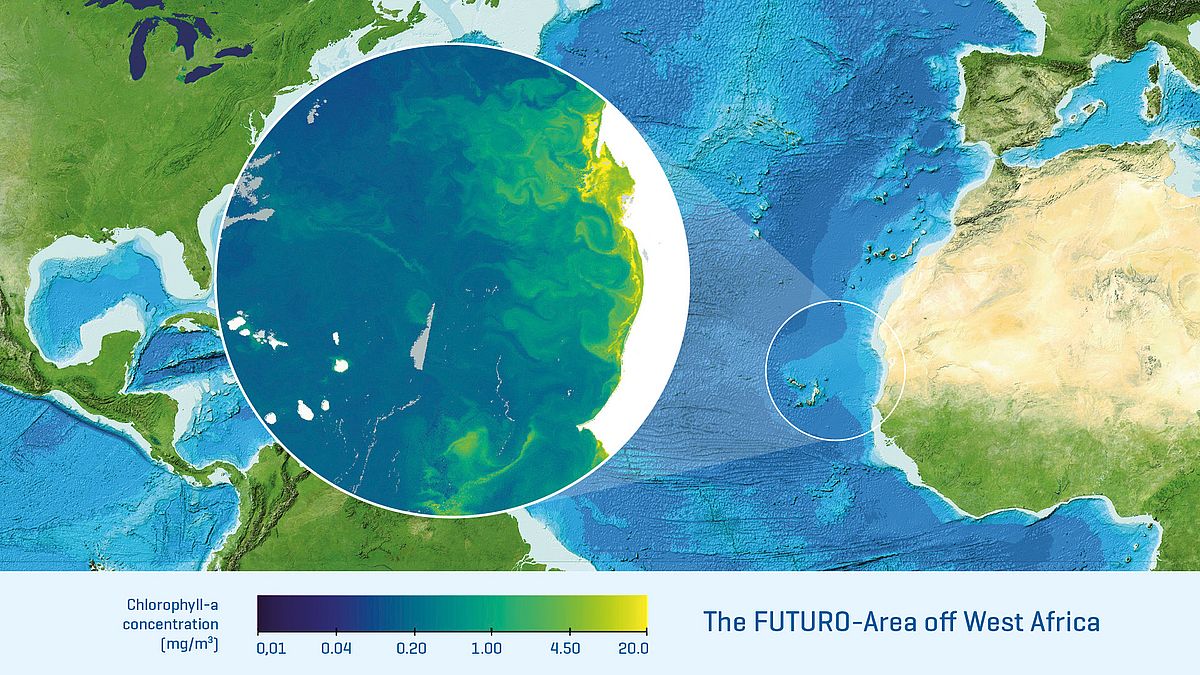Eastern boundary upwelling systems are among the most biologically productive and biodiverse regions of the world ocean and are thus of highest ecological and socio-economic importance. They are an integral part of the climate and subject to strong human-induced influences.
In upwelling regions, ocean warming, ocean acidification and ocean deoxygenation act together and can lead to possibly synergistic effects that can have negative consequences on ecosystem functioning. High fishing pressure, coupled with often inefficient fisheries management, unsustainable economic incentives and land-based pollution also have the potential to further worsen the situation. We have reason to believe that the functionality of coastal upwelling areas is particularly sensitive to these factors, for which reliable future scenarios are lacking. Significant changes in the ecosystem services that are extremely important for humankind are therefore to be expected.
The pelagic system of the major eastern boundary upwelling systems is characterised by a multitude of dynamic processes and a complex coupling of physical, chemical and biological factors. While an in-depth and system-wide description is missing so far, it is absolutely essential to develop reliable scenarios and forecasts of future changes. Such a thorough ‘description’ can only be achieved through a multidisciplinary approach given the complexity of the ecosystem, as well as the external and internal interactions and feedbacks, and the broad spectrum of relevant spatial and temporal scales, all of which require an innovative and holistic research perspective. With its advanced tools, the international marine research community has all the prerequisites to successfully address these extremely important in many respects.


![[Translate to English:] FUTURO Keyvisual](/fileadmin/_processed_/7/8/csm_futuro-visual-quer_6fc4c3bdf0.jpg)



